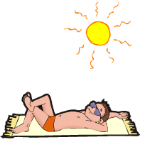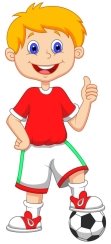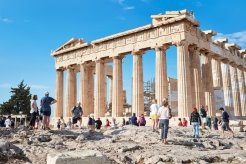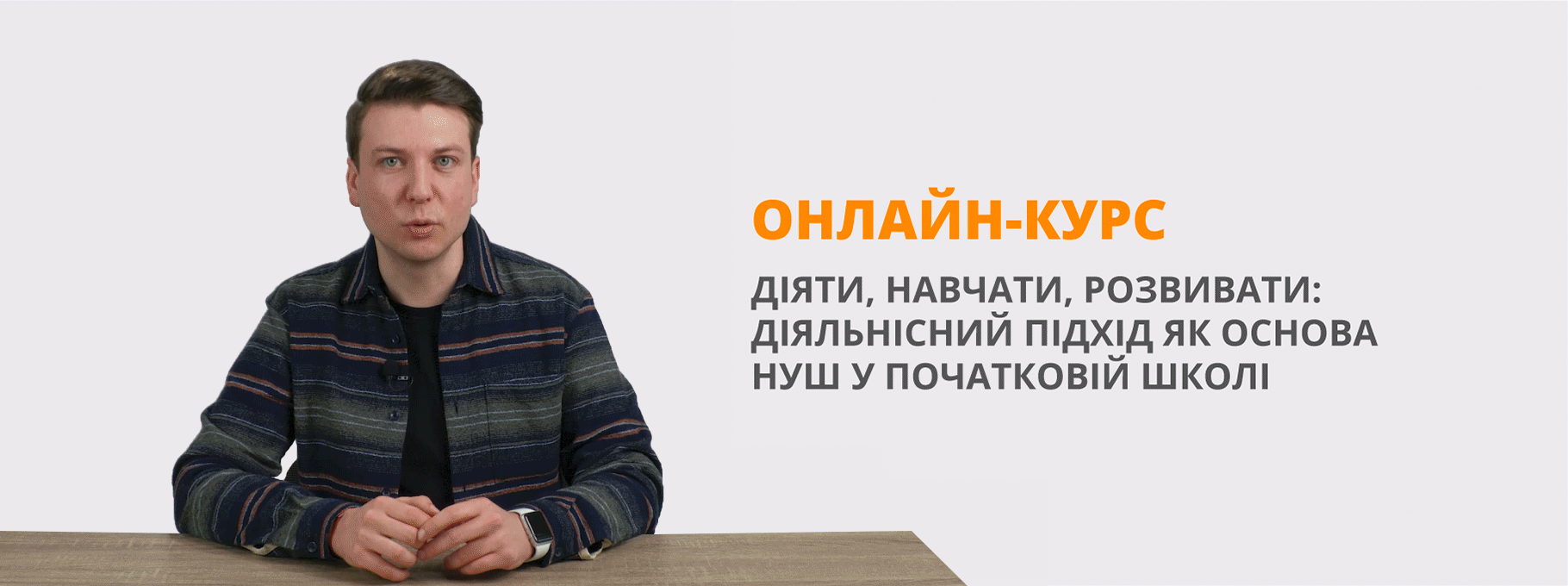Past Simple (6 Grammar Practice)
6 клас THE PAST SIMPLE
|
Дії відбулися в минулому. Слова-маркери: Yesterday, last…, …ago, when…, in 2008 |
|
|
У стверджувальній формі до правильних дієслів додається -ed (ask – asked, cook – cooked, play – played, visit – visited), а неправильні дієслова можна знайти в таблиці у другому стовпчику (be – was, go – went, read – read, say – said, tell – told, write – wrote) |
|
|
I cookED yesterday He DIDN’T cook yesterday DID you cook yesterday? |
I went (V2) to school yesterday He DIDN’T go to school yesterday DID you go to school yesterday? |
1. Read the letter about Igor’s summer holidays and pay attention to verbs in the Past Simple:
Dear John,
How are you? Did you have good summer holidays?
I had a wonderful time. My holidays were great.
 In June my friend Dima came to see us. We went to the cinema and ate a lot of ice-cream. We played football. It was very good, but I was very tired because we often came home late.
In June my friend Dima came to see us. We went to the cinema and ate a lot of ice-cream. We played football. It was very good, but I was very tired because we often came home late.
 In July I went to see my Granny. I went swimming in the lake, went to the woods and every morning went fishing with my Grandpa. It was fun!
In July I went to see my Granny. I went swimming in the lake, went to the woods and every morning went fishing with my Grandpa. It was fun!
August was very nice, too. My Dad and I went to the seaside. We sunbathed, went to the mountains and took a lot of pictures. My Mom couldn’t go with us because she was very busy with her work, and that was too bad.
What about you? What did you do in summer?
Yours, Igor
2. A) Put the verbs in brackets into the Past Simple:
 I want to tell you about a boy with whom I __ (be1) at the rest camp last summer. The boy’s name __ (be2) Taras. He __ (be3) a very good boy and a good friend. He __ (like4) to play football all the time. After breakfast he always __ (go5) to the football field and __ (play6) football. He __ (want7) to be a good football-player, that’s why he __ (play8) football in the morning, in the afternoon and in the evening. All the children __ (play9) ball, table tennis or chess. They __ (read10) books, __ (watch11) interesting films, __ (go12) to the river and to the forest. He __ (play13) football all the time and __ (not/rest14).
I want to tell you about a boy with whom I __ (be1) at the rest camp last summer. The boy’s name __ (be2) Taras. He __ (be3) a very good boy and a good friend. He __ (like4) to play football all the time. After breakfast he always __ (go5) to the football field and __ (play6) football. He __ (want7) to be a good football-player, that’s why he __ (play8) football in the morning, in the afternoon and in the evening. All the children __ (play9) ball, table tennis or chess. They __ (read10) books, __ (watch11) interesting films, __ (go12) to the river and to the forest. He __ (play13) football all the time and __ (not/rest14).
One day when Taras was playing football the rain __ (begin15). Taras __ (come16) to the camp very dirty. The camp doctor __ (see17) him and __ (say18): “Taras, you mustn’t play football so much. You must rest, read books and bathe in the river.”
B) Write questions to the answers and answer them:
1. Where __ Taras last summer?
2. What __ he play all the time?
3. When __ Taras play football?
4. Why __ Taras come to the camp dirty one day?
5. What __ the camp doctor tell him to do?
3. Put the verbs in brackets into the Past Simple:
 Yesterday my mum and I went (go1) to the supermarket. We __ (want2) to buy some food and a pair of jeans for me. My mum __ (take3) a trolley and we __ (go4) to choose food. We __ (need5) a bottle of olive oil, a packet of sugar, a kilo of sausages and a dozen of eggs. I __ (see6) my favourite chocolate and __ (ask7) my mum to buy a bar of it. When we __ (find8) all the products, we __ (pay9) for our goods at the cash register. After that we __ (go10) to choose jeans. We __ (try11) on a few pairs. Unfortunately there __ (not/be12) jeans of my size. I __ (be13) sad about it, but my mum __ (suggest14) going to a café to have some ice cream. I __ (agree15) happily because I like ice cream. All in all, our visit to the supermarket __ (not/be16) so sad.
Yesterday my mum and I went (go1) to the supermarket. We __ (want2) to buy some food and a pair of jeans for me. My mum __ (take3) a trolley and we __ (go4) to choose food. We __ (need5) a bottle of olive oil, a packet of sugar, a kilo of sausages and a dozen of eggs. I __ (see6) my favourite chocolate and __ (ask7) my mum to buy a bar of it. When we __ (find8) all the products, we __ (pay9) for our goods at the cash register. After that we __ (go10) to choose jeans. We __ (try11) on a few pairs. Unfortunately there __ (not/be12) jeans of my size. I __ (be13) sad about it, but my mum __ (suggest14) going to a café to have some ice cream. I __ (agree15) happily because I like ice cream. All in all, our visit to the supermarket __ (not/be16) so sad.
4. A) Put the verbs in brackets into the Past Simple:
Dear Susan,
 I want to tell you about my trip which I __ (have1) last month. I __ (be2) in Athens, Greece. The weather __ (be3) wonderful. We __ (swim4) in the sea and __ (enjoy5) our time. Our trip to Greece __ (be6) exciting because we __ (go7) to Athens by plane. I __ (like8) it very much! We __ (get9) on the plane in an airport in Kyiv and we __ (arrive10) at the airport in Athens two hours later. I __ (take11) a lot of photos of ancient buildings and __ (buy12) many souvenirs.
I want to tell you about my trip which I __ (have1) last month. I __ (be2) in Athens, Greece. The weather __ (be3) wonderful. We __ (swim4) in the sea and __ (enjoy5) our time. Our trip to Greece __ (be6) exciting because we __ (go7) to Athens by plane. I __ (like8) it very much! We __ (get9) on the plane in an airport in Kyiv and we __ (arrive10) at the airport in Athens two hours later. I __ (take11) a lot of photos of ancient buildings and __ (buy12) many souvenirs.
Hope to see you soon.
Love,
 Helen
Helen
B) Write questions to the answers:
1. When did Helen go to Greece? – Helen went to Greece last month.
2. What ___? – The weather was wonderful.
3. Why ___? – Helen’s trip was exciting because she travelled by plane for the first time.
4. Where ___? – Helen got on a plane in a Kyiv airport.
5. What ___? – Helen bought a lot of souvenirs.
5. Put the verbs in brackets into the Past Simple:
Tom __ (get1) up very early yesterday morning and __ (take2) a bath. Then he __ (go3) down to the kitchen and __ (eat4) two pieces of toast and __ (drink5) a glass of milk.
Tom works in the local hospital and, yesterday he __ (leave6) the house at about 8 o’clock. He __ (take7) the number ten bus and he __ (arrive8) at work at 8.30. He __ (say9) ‘good morning’ to his secretary, Maura, and then he __ (check10) his e-mail. Then Tom __ (ask11) Maura for a cup of coffee and __ (write12) four very important letters. Then he __ (send13) them by e-mail.
At one o’clock Tom __ (go14) for lunch in a café and __ (read15) his newspaper. He __ (return16) to the office at two o’clock and __ (leave17) at six. He __ (not/take18) the bus because a friend __ (take19) him in the car.
In the evening Tom __ (swim20) in the local swimming pool and __ (go21) shopping in the local supermarket where he __ (buy22) a lot of food. He __ (be23) very tired in the evening so he __ (not/want24) to watch television. He __ (go25) to bed at 11 o’clock and he __ (dream26) about winning the lottery.
6. Read about Charlie and complete the questions and answers in the Past Simple:
Yesterday was a terrible day for Charlie Parker. He was a very sad man. He got up late, at 8 am, because his alarm clock broke. So he didn’t have time for breakfast and was very hungry. He couldn’t find his Bentley car, so he rode to work on his bicycle in the rain. His boss was very angry with him, so Charlie had his lunch alone in the café. He was very busy all day long, so he finished his work only at 8.30 pm. His wife went to the cinema with her friend, so Charlie had dinner alone, too! He was very tired and didn’t want to watch TV. He went to bed at 10 pm.
1. __ Charlie Parker happy yesterday? – No, he wasn’t.
2. What time __ he get up yesterday? – At 8 am.
3. How __ he get to work yesterday? – By bicycle.
4. Who __ he have lunch with yesterday? – Nobody. He ate alone.
5. Where __ he have lunch yesterday? – In the café.
6. When __ he finish work yesterday? – At 6.30 pm.
7. __ he have dinner with his wife yesterday? – No, he __.
8. How long __ he watch TV yesterday? – He __ TV yesterday.
9. When __ he go to bed? – He went to bed at 10 pm.
-
Thank you!


про публікацію авторської розробки
Додати розробку
